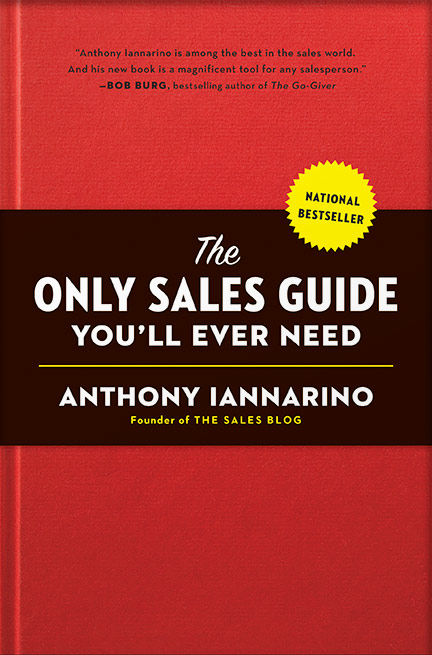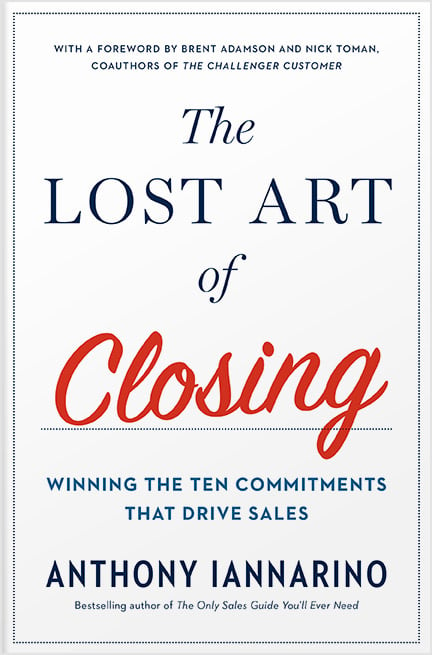The Gist:
- Small companies struggle to compete with their larger competitors, often not recognizing the strategies for beating big companies.
- Large companies have advantages in size and scale, including the many solutions they offer.
- The way to beat Goliath is to be everything that they are not: a boutique.
Salespeople who work for smaller companies often worry about having to compete with much larger companies. In their view, the larger company has advantages they can’t hope to match, no matter how good their strategy is. Larger companies do have advantages in size and scale, but it’s also easy to exploit their vulnerabilities, especially in long-term competition over months or years.
Smaller companies—let’s call them boutiques—have their own advantages that can counter an edge in size while taking aim at the giant company’s disadvantages. The first step in beating Goliath is believing that the big, lumbering, behemoth can be beaten with a small, well-placed stone to the noggin.


A Few Words About Big Companies
If you have never worked for a very large company, you don’t understand how difficult it can be. Every company has problems, but the sheer size of big companies magnifies the effects of their many problems. It often comes down to problem-solving ability. While it’s true that big companies attract many super-competent employees, they also have more people struggling to do good work. In any organization, the larger problems tend to find their way to the most competent problem-solvers, depriving them of the time and energy to do more proactive and forward-looking work.
Similarly, when a company scales up, so does the number of clients they have to serve. Serving these clients generally results in the creation of rules, regulations, and standard operating procedures, all managed by an ever-burgeoning bureaucracy to track and enforce compliance. Goliath, as big as he was, needed huge bones to support his gargantuan body.
Finally, the larger a company scales, the more it is necessary to create programs for their clients to be able to execute effectively. You and I both buy goods and services from very large companies. When we buy from them, they put us in a program that is designed to fit the needs of all of their clients. For a large company, tailoring the solution is a matter of making a few easy and relatively meaningless choices.


The Benefits of Being Small
Everything that a big company is, a small company is not. You don’t have the benefit of dozens of programs and solutions that your large competitor can leverage and sell. The number of people working for your company is nowhere near your rival’s workforce, and the same goes for your office space. Your diminutive size can make you look like a riskier choice for larger clients, who often believe (with some justification) that they need to buy from a bigger company to meet their needs.
As a small sales organization, you don’t want to compete where you cannot win. You can make none of the grandiose claims the larger company can make, and you can’t compete with their size, scale, and resources. Beating Goliath means turning your large company’s advantages into disadvantages, while simultaneously converting your size disadvantages into a game-changing advantage. Winning these contests means boldly and proudly saying, “I’m small, y’all!”


Winning Against a Larger Rival
You may at some point recognize a pattern in large companies’ purchases. They start by choosing a very large company, believing that is the safest choice. How can they fail, the thinking goes, when they are so big and have so many clients? Over time, the constraints of the big company’s processes and programs makes it difficult for their big client to operate efficiently, and they decide that the big company isn’t really right for them. They release an RFP and choose another big company that, despite its own constraints and limited customization, they try again. After enough frustration, the client starts to open up to the idea that they really need a partner who can do things the way that they need them to do be done, eliminating the challenges of being forced into cookie-cutter programs and solutions.
Here’s when you show up with a leather strap and a stone, fearlessly walking into the boardroom and confidently announcing to the legion of stakeholders and decision-makers that you are…boutique. Because you have no overwhelming size or scale or programs to talk about, you tell the contacts staring at you from across the table that the way you help companies like theirs is by being large enough to have the resources to effectively take care of their needs, while being small enough to customize a solution that will meet their individual and collective needs. In doing so, you have stuck Goliath in his Achilles, well, forehead, the big guy’s soft spot.
In general, individuals and companies want someone to customize what they buy to meet their specific needs. They want to the solution to work for them in the way that best serves them. You want to make your larger rivals have to compete against your ability to be what they are not: small, nimble, hungry, and willing to build a program specifically for the client.
A Final Warning
While this strategy will help you beat out most big companies for big clients, the big companies you should fear the most are the ones who have figured out how to decentralize at the point of delivery to the client. They still have the size and scale to contend with, but the fact that they are agile at the point of contact with the client allows them to tailor both their offerings and their delivery. When a big company feels like a small company, they are incredibly tough to beat.
Do Good Work:
- What advantages do you have due to the size of your business?
- What are your disadvantages in a competition with your rival?
- How can you exploit your competitor’s strength by making it their weakness?








.jpg?width=768&height=994&name=salescall-planner-ebook-v3-1-cover%20(1).jpg)



Comments